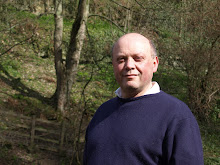The independent review that I carried out with the Primary Care Tsar Dr David Colin Thomé was published immediately after the inquest. The Minister, Mike O’Brien, David and I were immersed in news and television interviews for most of the day. Most went reasonably well but Jeremy Vine, and then Edwina Currie had a go at me – ‘the good professor’. They seemed to think that we should go back to pre-2004 – complete nonsense. They don’t understand.
It seemed like they were putting all the blame on GPs – you and me – or the GP contract. I tried very hard to say that the contract was needed and how I had spent five or six years working every other night and every other weekend, being exhausted and having to go out and visit people – many of whom didn’t need visiting – children with runny noses and sore ears in the middle of the night. I can even remember visiting an old woman with a chest infection one Christmas to find a GP from another practice in the same bedroom visiting her husband who also had a chest infection!
I tried to point out that the awful case in Cambridgeshire has nothing to do with the contract and that the whole point of moving commissioning to PCTs was that better quality care could be provided across a locality by GPs who are alert and not exhausted both in and out of hours. They completely missed the point, but most of the other media thankfully took a more sensible view.
We conclude in our report that the quality of OOH provision varies across the UK, and made twenty-four recommendations, which include:
It seemed like they were putting all the blame on GPs – you and me – or the GP contract. I tried very hard to say that the contract was needed and how I had spent five or six years working every other night and every other weekend, being exhausted and having to go out and visit people – many of whom didn’t need visiting – children with runny noses and sore ears in the middle of the night. I can even remember visiting an old woman with a chest infection one Christmas to find a GP from another practice in the same bedroom visiting her husband who also had a chest infection!
I tried to point out that the awful case in Cambridgeshire has nothing to do with the contract and that the whole point of moving commissioning to PCTs was that better quality care could be provided across a locality by GPs who are alert and not exhausted both in and out of hours. They completely missed the point, but most of the other media thankfully took a more sensible view.
We conclude in our report that the quality of OOH provision varies across the UK, and made twenty-four recommendations, which include:
- PCTs should review the performance management arrangements in place for their out-of-hours services and ensure they are robust and fit for purpose;
- The Department of Health should issue guidance to PCTs to assist them in making decisions about whether or not a doctor has the necessary knowledge of English;
- The Department of Health should develop and introduce an improvement programme for PCTs to support their commissioning and performance management of out-of-hours services;
- Out-of-hours providers should consider the recruitment and selection processes in place for clinical staff to ensure they are robust and that they are following best practice;
- Strategic Health Authorities should consider how they monitor action taken by PCTs in response to this report and in carrying out appropriate performance management of out-of-hours providers; and
- Providers should co-operate with other local and regional providers (both in and out-of-hours) to share any concerns over staff working excessive hours for their respective services.
The report can be found here
I hope you will have a chance to read the report in full and would be very interested in your feedback – especially as I have to give evidence on the issue to a Parliamentary Select Committee in early March, which is a stressful experience in itself.
I know that all of us GPs want to provide the best quality care for our patients. It’s a real shame that people feel that because of this case we’ve all let our patients down. I hope that some good can come out of this and that we can improve the system to ensure that patients get the care they deserve, night and day, regardless of where they live.
Thanks as always for your support. I value your opinions and feedback enormously, and I urge you to get in touch if you have any comments or questions for me.

